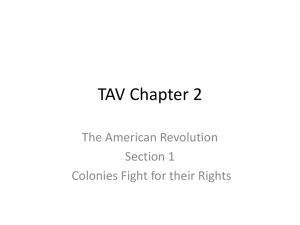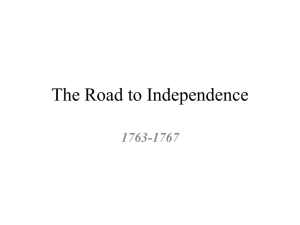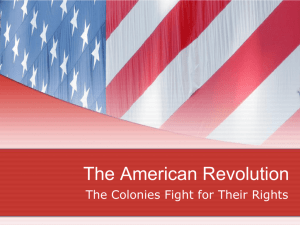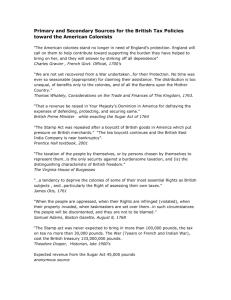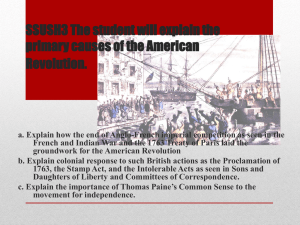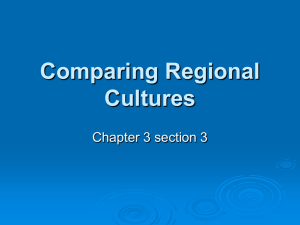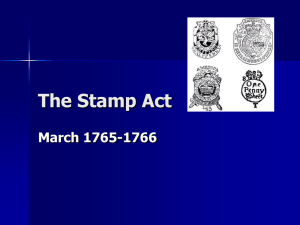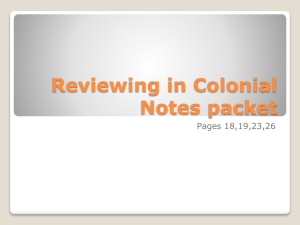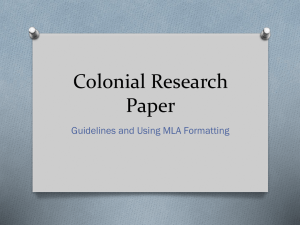The Colonies Fight for Their Rights
advertisement
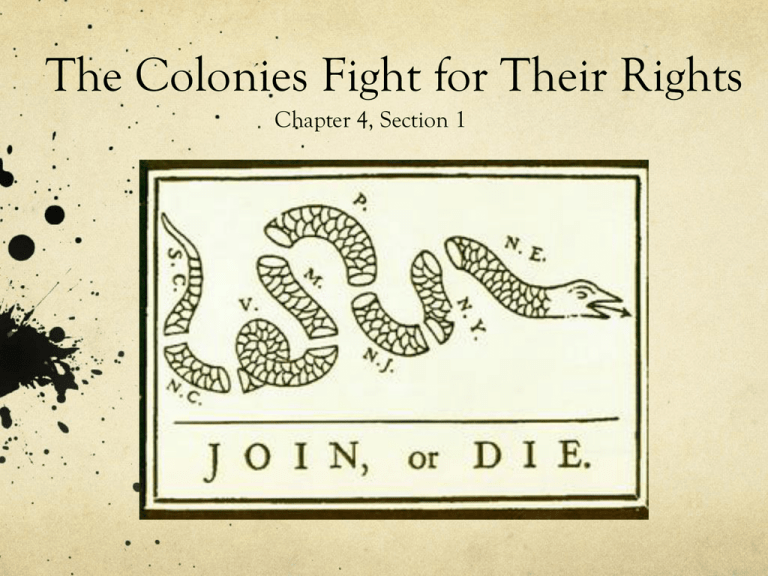
The Colonies Fight for Their Rights Chapter 4, Section 1 What major events fueled colonial discontentment with British rule? Mercantilism in Practice Key Idea: Tensions between Britain and its American colonies grew as British leaders sought greater control over their North American empire. In the next ten minutes, skim pages 116 – 123 in your text, and write down as many examples of British policies to control trade in the colonies as you can find. Be prepared to share your answers. Discuss two of the policies you wrote down with the person next to you. North America in 1750 The French and Indian War The British and French colonies (allied with Native Americans) warred over the valuable Ohio River Valley. War ended with the Treaty of Paris Britain gains New France and Louisiana east of the Mississippi (except for New Orleans) from France Britain gains Florida from Spain British borrowed money to fund war Brit. adopts policies to force colonies to repay war debts through taxation North America in 1763 The Colonies Grow Discontented Royal Proclamation of 1763 King George reserved land west of Appalachian mts. to Native Americans to avoid war Customs Reforms British begin sending smugglers to viceadmirality court in Nova Scotia for not paying customs duties Sugar Act 1764 increased taxes on sugar and molasses from foreign colonies merchants felt this hurt trade traditional English rights violated accused smugglers guilty until proven innocent govt. could seize goods without due process pamphlets condemned the Sugar Act James Otis – “No taxation without representation” The Stamp Act Crisis Stamp Act 1765 stamps placed on printed materials (e.g. newspapers, pamphlets, wills, deeds, playing cards) Quartering Act 1765 if colonies didn’t provide barracks for British troops, colonies must pay rent for troops to live elsewhere Sons of Liberty 1765 formed to protest Stamp Act Stamp Act Congress 1765 wrote Declaration of Rights and Grievances arguing only colonial representatives had the right to tax them Non-importation agreement formal agreement to boycott British imports until parliament repealed Stamp Act The Townshend Acts New regulations and taxes Revenue Act of 1767 allowed customs officials to enter any location to look for evidence of smuggling Massachusetts Assembly and Virginia House of Burgesses dissolved after standing up to the British government against Townshend Acts results in further boycotting of British goods Daughters of Liberty formed by women to spin their own cloth in the colonies – sign of patriotism 1770 Boston Massacre 1000 British troops deployed to Boston to maintain order colonists taunted troops regularly snow ball thrown and in the chaos British troops fire on colonists killing 5 and wounding 6 What major events fueled colonial discontentment with British rule?


